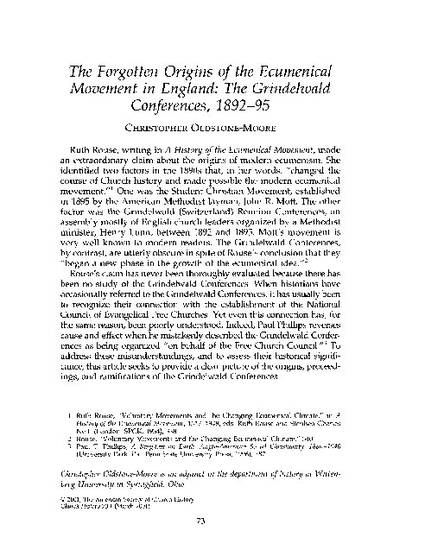
Ruth Rouse, writing in A History of the Ecumenical Movement, made an extraordinary claim about the origins of modern ecumenism. She identified two factors in the 1890s that, in her words, "changed the course of Church history and made possible the modern ecumenical movement." One was the Student Christian Movement, established m 1895 by the American Methodist layman, John R. Mott. The other factor was the Grindelwald (Switzerland) Reunion Conferences, an assembly mostly of English church leaders organized by a Methodist minister, Henry Lunn, between 1892 and 1895. Mott's movement is very well known to modern readers. The Grindelwald Conferences, by contrast, are utterly obscure in spite of Rouse's conclusion that they "began a new phase in the growth of the ecumenical idea."
Available at: http://works.bepress.com/christopher_oldstone-moore/7/

Copyright of the American Society of Church History. The version of record of this article can be found at http://dx.doi.org/10.2307/3654411.